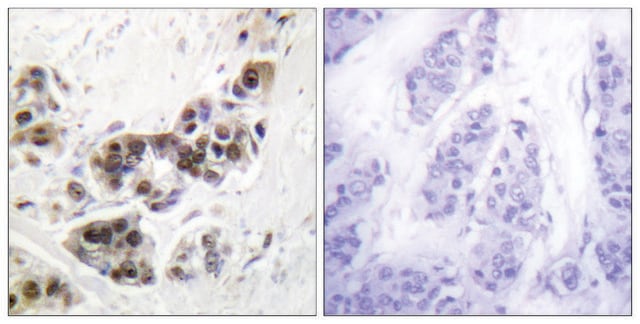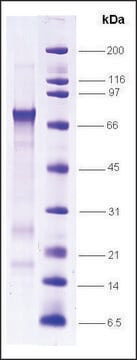P6374
p53 human
recombinant, expressed in baculovirus infected Sf21 cells
About This Item
Produits recommandés
Source biologique
human
Niveau de qualité
Produit recombinant
expressed in baculovirus infected Sf21 cells
Pureté
≥90% (SDS-PAGE)
Forme
aqueous solution
Technique(s)
dot blot: suitable
Numéro d'accès UniProt
Application(s)
genomic analysis
Conditions d'expédition
dry ice
Température de stockage
−70°C
Informations sur le gène
human ... TP53(7157)
Vous recherchez des produits similaires ? Visite Guide de comparaison des produits
Description générale
Application
Actions biochimiques/physiologiques
Propriétés physiques
Forme physique
Code de la classe de stockage
10 - Combustible liquids
Classe de danger pour l'eau (WGK)
WGK 3
Point d'éclair (°F)
Not applicable
Point d'éclair (°C)
Not applicable
Certificats d'analyse (COA)
Recherchez un Certificats d'analyse (COA) en saisissant le numéro de lot du produit. Les numéros de lot figurent sur l'étiquette du produit après les mots "Lot" ou "Batch".
Déjà en possession de ce produit ?
Retrouvez la documentation relative aux produits que vous avez récemment achetés dans la Bibliothèque de documents.
Notre équipe de scientifiques dispose d'une expérience dans tous les secteurs de la recherche, notamment en sciences de la vie, science des matériaux, synthèse chimique, chromatographie, analyse et dans de nombreux autres domaines..
Contacter notre Service technique








